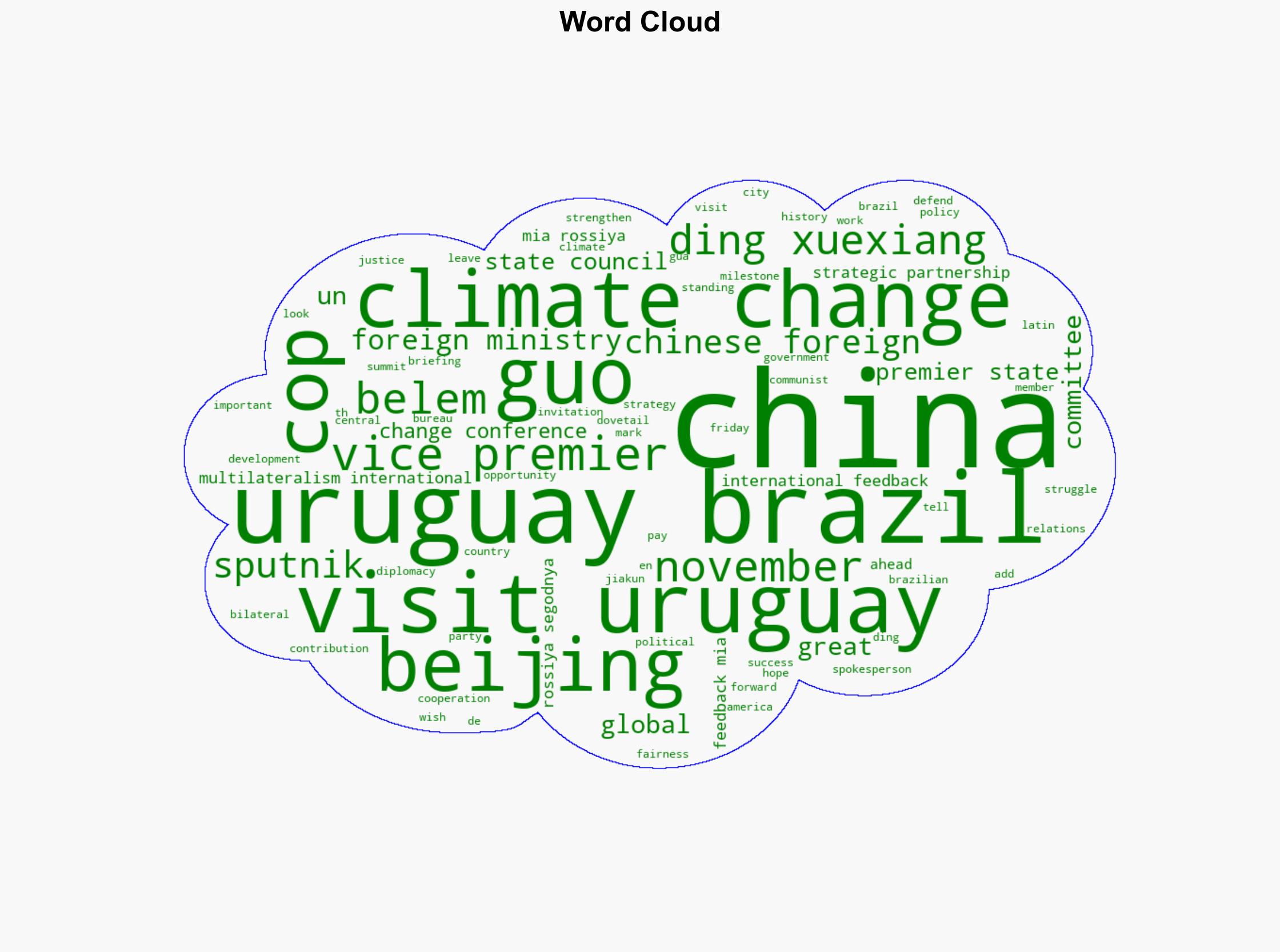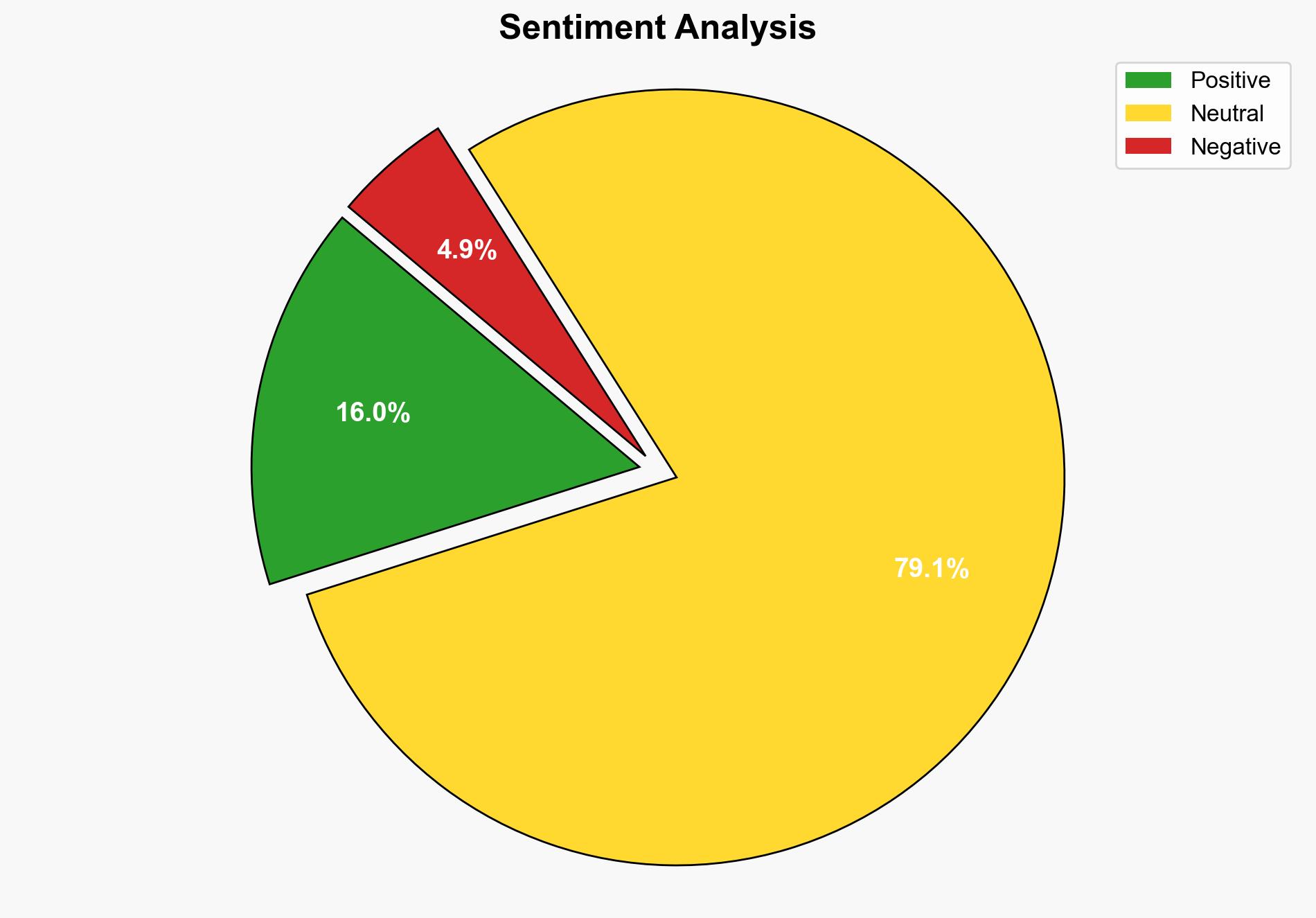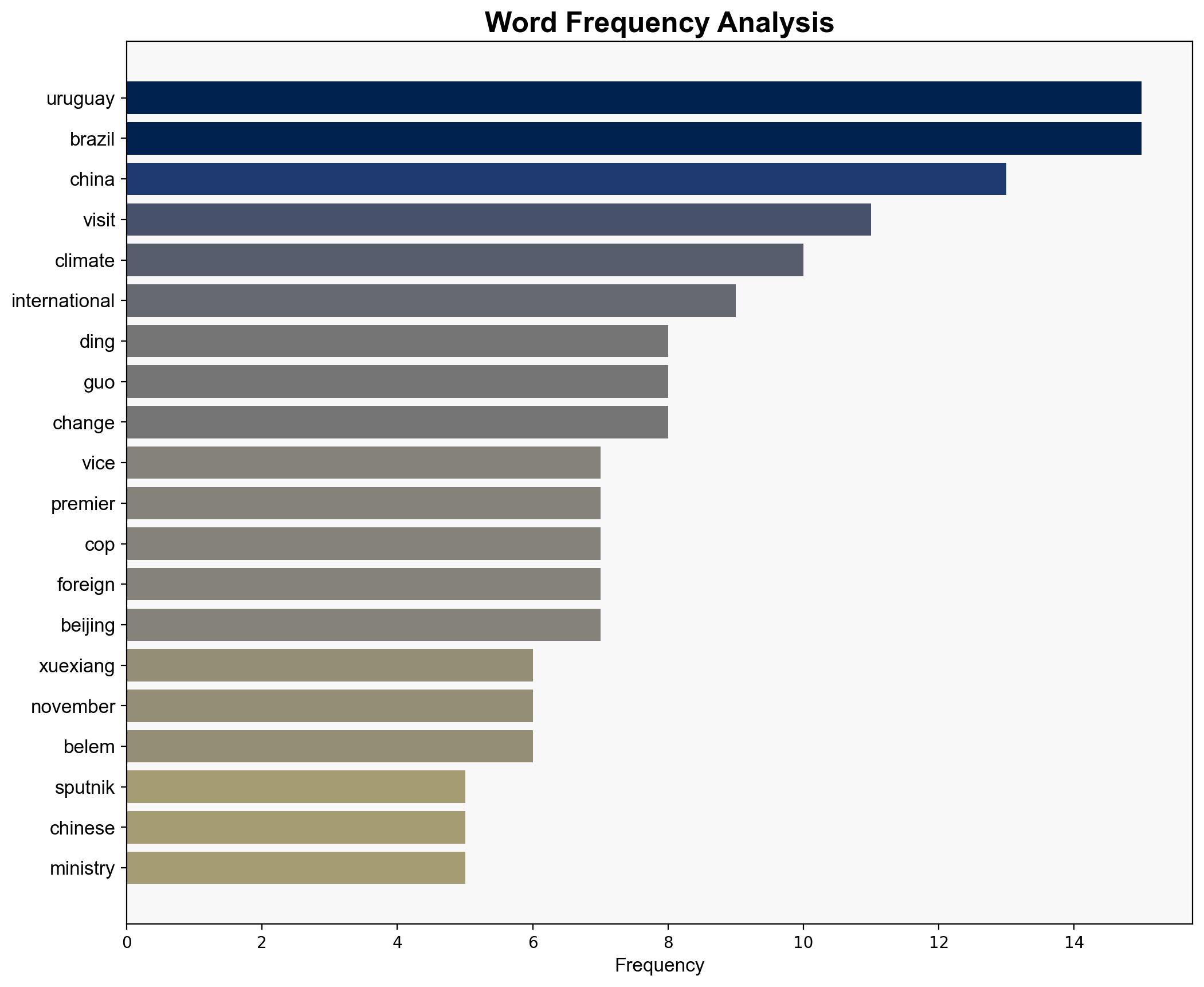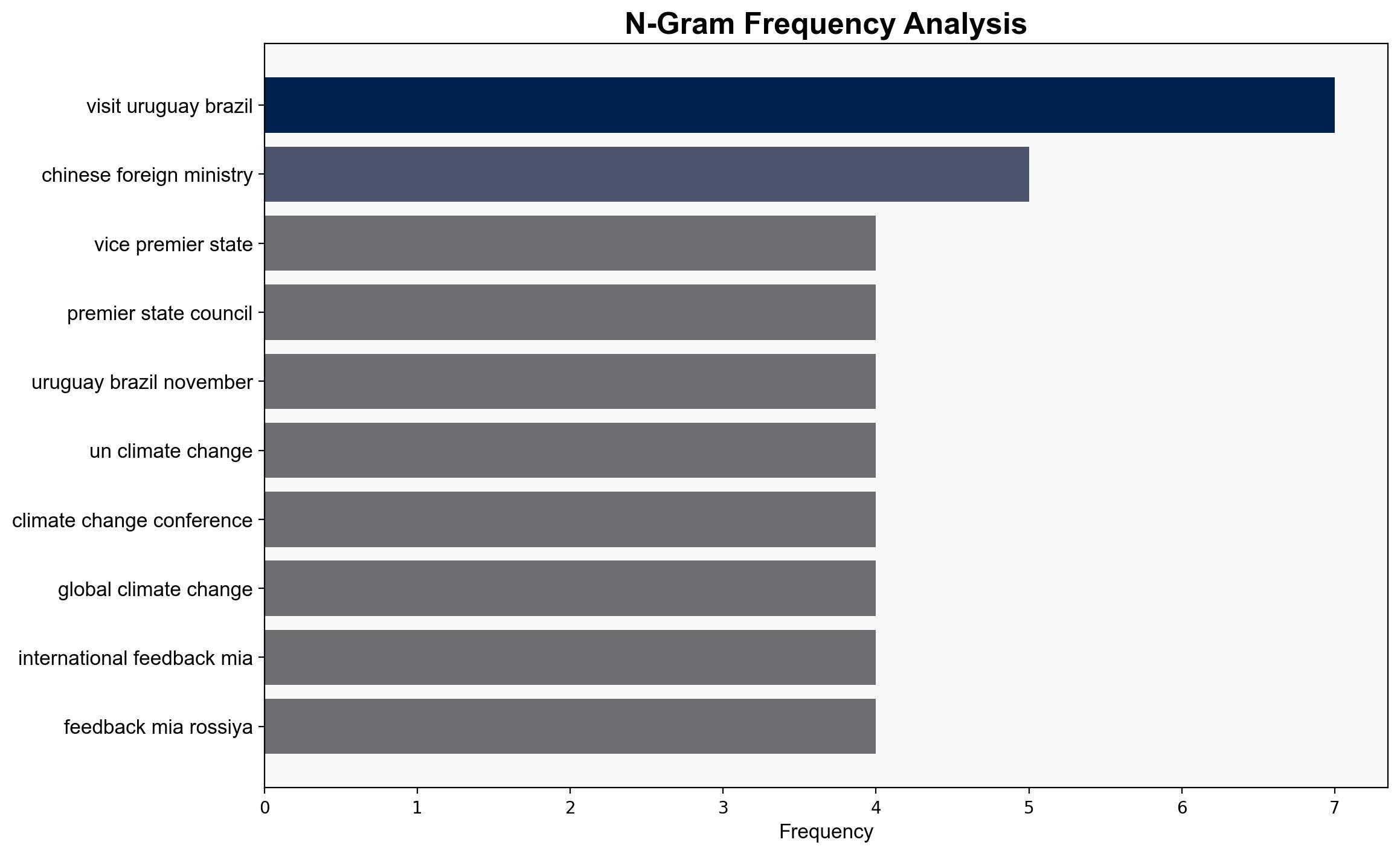Chinas Vice Premier to Visit Uruguay and Brazil Ahead of COP30 – Sputnikglobe.com
Published on: 2025-11-01
Intelligence Report: Chinas Vice Premier to Visit Uruguay and Brazil Ahead of COP30 – Sputnikglobe.com
1. BLUF (Bottom Line Up Front)
China’s Vice Premier Ding Xuexiang’s visit to Uruguay and Brazil is strategically aimed at strengthening bilateral relations and aligning with Brazil’s climate change agenda ahead of COP30. The most supported hypothesis is that China seeks to bolster its influence in Latin America through multilateral cooperation on climate change. Confidence level: Moderate. Recommended action: Monitor China’s diplomatic engagements in Latin America for shifts in regional alliances and potential economic partnerships.
2. Competing Hypotheses
1. **Hypothesis A**: China is primarily focused on enhancing its diplomatic and economic ties with Uruguay and Brazil, using climate change as a platform to strengthen strategic partnerships and increase its influence in Latin America.
2. **Hypothesis B**: The visit is mainly a symbolic gesture to showcase China’s commitment to global climate initiatives, with limited immediate impact on bilateral relations or regional influence.
Using the Analysis of Competing Hypotheses (ACH) 2.0, Hypothesis A is better supported due to China’s historical pattern of leveraging climate diplomacy to expand its geopolitical reach and the explicit mention of strategic partnership goals in the source.
3. Key Assumptions and Red Flags
– **Assumptions**: It is assumed that climate change is a primary driver for China’s engagement, and that Uruguay and Brazil are receptive to deeper ties with China.
– **Red Flags**: Lack of detailed information on specific agreements or initiatives planned during the visit. Potential over-reliance on climate change as the sole motivator for the visit.
– **Blind Spots**: The possibility of underlying economic or security agreements not disclosed in the public domain.
4. Implications and Strategic Risks
– **Geopolitical**: Strengthening ties with Brazil could shift regional power dynamics, potentially challenging U.S. influence in Latin America.
– **Economic**: Enhanced partnerships may lead to increased Chinese investment in Latin American infrastructure and technology sectors.
– **Environmental**: China’s involvement in COP30 could influence global climate policy directions, aligning them with its strategic interests.
5. Recommendations and Outlook
- Monitor China’s diplomatic activities and public statements during the visit for indications of new bilateral agreements.
- Engage with regional partners to assess their perspectives on China’s growing influence.
- Scenario-based projections:
- Best: Strengthened multilateral cooperation leads to significant progress in climate initiatives.
- Worst: China’s influence leads to regional tensions and economic dependency.
- Most Likely: Incremental strengthening of relations with potential for future economic partnerships.
6. Key Individuals and Entities
– Ding Xuexiang
– Guo Jiakun
– Chinese Foreign Ministry
7. Thematic Tags
national security threats, geopolitical strategy, climate diplomacy, Latin America relations




